Piano Sheet Music
 "Without music life would be a mistake. " Friedrich Wilhelm Nietzsche
"Without music life would be a mistake. " Friedrich Wilhelm Nietzsche
Keith Jarrett

Keith Jarrett (born May 8, 1945 in Allentown, Pennsylvania) is an American pianist and composer.
His career started with Art Blakey, Charles Lloyd and Miles Davis. Since the early 1970s he has enjoyed a great deal of success in both classical music and jazz, as a group leader and a solo performer. His improvisation technique combines not only jazz, but also other forms of music, especially classical, gospel, blues and ethnic folk music.
In 2003 he received the Polar Music Prize, being the first (and to this day only) recipient not sharing the prize with anyone else.
His career started with Art Blakey, Charles Lloyd and Miles Davis. Since the early 1970s he has enjoyed a great deal of success in both classical music and jazz, as a group leader and a solo performer. His improvisation technique combines not only jazz, but also other forms of music, especially classical, gospel, blues and ethnic folk music.
In 2003 he received the Polar Music Prize, being the first (and to this day only) recipient not sharing the prize with anyone else.
Hannah Montana
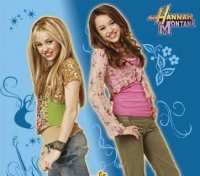
Hannah Montana is an Emmy Award-nominated American television series, which debuted on March 24, 2006 on Disney Channel. The series focuses on a girl who lives a double life as an average teenage school girl named Miley Stewart (played by Miley Cyrus) by day and a famous pop singer named Hannah Montana by night, concealing her real identity from the public, other than her close friends and family.
On April 9, 2008, it was announced that Hannah Montana would return for a third season in 2008 and production started on August 4, 2008.
On April 9, 2008, it was announced that Hannah Montana would return for a third season in 2008 and production started on August 4, 2008.
Miles Davis

Miles Dewey Davis III (May 26, 1926 – September 28, 1991) was an American trumpeter, bandleader, and composer.
Widely considered one of the most influential musicians of the 20th century, Miles Davis was, with his musical groups, at the forefront of several major developments in jazz music, including bebop, cool jazz, hard bop, modal jazz, and jazz fusion. Many well-known musicians rose to prominence as members of Davis' ensembles, including saxophonists Gerry Mulligan, John Coltrane, Cannonball Adderley, George Coleman, Wayne Shorter, Dave Liebman, Branford Marsalis and Kenny Garrett; trombonist J. J. Johnson; pianists Horace Silver, Red Garland, Wynton Kelly, Bill Evans, Herbie Hancock, Joe Zawinul, Chick Corea, and Keith Jarrett; guitarists John McLaughlin, Pete Cosey, John Scofield and Mike Stern; bassists Paul Chambers, Ron Carter, Dave Holland, Marcus Miller and Darryl Jones ; and drummers Philly Joe Jones, Jimmy Cobb, Tony Williams, Billy Cobham, Jack DeJohnette, and Al Foster.
On October 7, 2008, his album Kind of Blue, released in 1959, received its fourth platinum certification from the RIAA, signifying sales of 4 million copies. Miles Davis was inducted into the Rock and Roll Hall of Fame in 2006. Davis was noted as "one of the key figures in the history of jazz".
On November 5, 2009, Rep. John Conyers of Michigan sponsored a measure in the US House of Representatives to recognize and commemorate the album Kind of Blue on its 50th anniversary. The measure also affirms jazz as a national treasure and "encourages the United States government to preserve and advance the art form of jazz music." It passed, unanimously, with a vote of 409–0 on December 15, 2009.
Widely considered one of the most influential musicians of the 20th century, Miles Davis was, with his musical groups, at the forefront of several major developments in jazz music, including bebop, cool jazz, hard bop, modal jazz, and jazz fusion. Many well-known musicians rose to prominence as members of Davis' ensembles, including saxophonists Gerry Mulligan, John Coltrane, Cannonball Adderley, George Coleman, Wayne Shorter, Dave Liebman, Branford Marsalis and Kenny Garrett; trombonist J. J. Johnson; pianists Horace Silver, Red Garland, Wynton Kelly, Bill Evans, Herbie Hancock, Joe Zawinul, Chick Corea, and Keith Jarrett; guitarists John McLaughlin, Pete Cosey, John Scofield and Mike Stern; bassists Paul Chambers, Ron Carter, Dave Holland, Marcus Miller and Darryl Jones ; and drummers Philly Joe Jones, Jimmy Cobb, Tony Williams, Billy Cobham, Jack DeJohnette, and Al Foster.
On October 7, 2008, his album Kind of Blue, released in 1959, received its fourth platinum certification from the RIAA, signifying sales of 4 million copies. Miles Davis was inducted into the Rock and Roll Hall of Fame in 2006. Davis was noted as "one of the key figures in the history of jazz".
On November 5, 2009, Rep. John Conyers of Michigan sponsored a measure in the US House of Representatives to recognize and commemorate the album Kind of Blue on its 50th anniversary. The measure also affirms jazz as a national treasure and "encourages the United States government to preserve and advance the art form of jazz music." It passed, unanimously, with a vote of 409–0 on December 15, 2009.
Traditional

Charlélie Couture
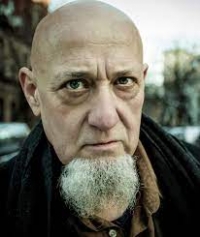
Charlélie Couture is a French & American musician and multi-disciplinary artist, who has recorded over 25 albums and 17 film soundtracks, and has held a number of exhibitions of paintings and photographs.
Ennio Morricone
Ennio Morricone, OMRI (born November 10, 1928), is an Italian composer and conductor. He has composed and arranged scores for more than 500 film and television productions. Morricone is considered as one of the most influential film composers since the late 1950s. He is well-known for his long-term collaborations with international acclaimed directors such as Sergio Leone, Brian De Palma, Barry Levinson, and Giuseppe Tornatore.
He wrote the characteristic film scores of Leone's Spaghetti Westerns A Fistful of Dollars (1964), For a Few Dollars More (1965), The Good, the Bad and the Ugly (1966), Once Upon a Time in the West (1968), The Great Silence (1968), and My Name Is Nobody (1973). In the 80s, Morricone composed the scores for John Carpenter's horror movie The Thing (1982), Leone's Once Upon a Time in America (1984), Roland Joffé's The Mission (1986), Brian De Palma's The Untouchables (1987) and Giuseppe Tornatore's Cinema Paradiso (1988).
His more recent compositions include the scores for Oliver Stone's U Turn (1997), Tornatore's The Legend of 1900 (1998) and Malèna (2000), Mission to Mars (2000) by Brian De Palma, Fateless (2005), and Baaria - La porta del vento (2009). Ennio Morricone has won two Grammy Awards, two Golden Globes and five Anthony Asquith Awards for Film Music by BAFTA in 1979–1992. He has been nominated for five Academy Awards for Best Music, Original Score in 1979–2001. Morricone received the Honorary Academy Award in 2007 "for his magnificent and multifaceted contributions to the art of film music". He was the second composer to receive this award after its introduction in 1928.
He wrote the characteristic film scores of Leone's Spaghetti Westerns A Fistful of Dollars (1964), For a Few Dollars More (1965), The Good, the Bad and the Ugly (1966), Once Upon a Time in the West (1968), The Great Silence (1968), and My Name Is Nobody (1973). In the 80s, Morricone composed the scores for John Carpenter's horror movie The Thing (1982), Leone's Once Upon a Time in America (1984), Roland Joffé's The Mission (1986), Brian De Palma's The Untouchables (1987) and Giuseppe Tornatore's Cinema Paradiso (1988).
His more recent compositions include the scores for Oliver Stone's U Turn (1997), Tornatore's The Legend of 1900 (1998) and Malèna (2000), Mission to Mars (2000) by Brian De Palma, Fateless (2005), and Baaria - La porta del vento (2009). Ennio Morricone has won two Grammy Awards, two Golden Globes and five Anthony Asquith Awards for Film Music by BAFTA in 1979–1992. He has been nominated for five Academy Awards for Best Music, Original Score in 1979–2001. Morricone received the Honorary Academy Award in 2007 "for his magnificent and multifaceted contributions to the art of film music". He was the second composer to receive this award after its introduction in 1928.
John Dowland
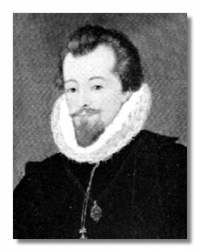
John Dowland (1563 – buried 20 February 1626) was an English composer, singer, and lutenist. He is best known today for his melancholy songs such as "Come, heavy sleep" (the basis for Benjamin Britten's Nocturnal), "Come again", "Flow my tears", "I saw my Lady weepe" and "In darkness let me dwell", but his instrumental music has undergone a major revival, and has been a source of repertoire for classical guitarists during the twentieth century.
My Fair Lady
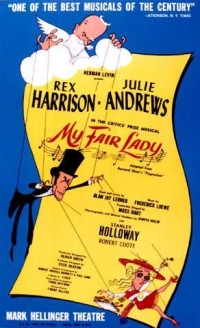
My Fair Lady is a musical based upon George Bernard Shaw's Pygmalion and with book and lyrics by Alan Jay Lerner and music by Frederick Loewe. The story concerns Eliza Doolittle, a Cockney flower girl who takes speech lessons from professor Henry Higgins so that she can pass as a lady. Higgins takes credit for Eliza's success, but she realizes that she can now be independent and does not need him.
The musical's 1956 Broadway production was a smash hit, setting a new record for the longest run of any major musical theatre production in history. It was followed by a hit London production, a popular film version, and numerous revivals. It has been called "the perfect musical."
The musical's 1956 Broadway production was a smash hit, setting a new record for the longest run of any major musical theatre production in history. It was followed by a hit London production, a popular film version, and numerous revivals. It has been called "the perfect musical."
Jim Martin
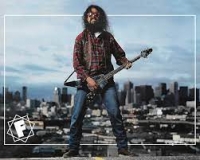
James Blanco Martin known professionally as Big Jim Martin, is an American guitarist best known for his membership in the rock band Faith No More from 1983 to late 1993. Martin also played guitar with the groups EZ-Street, Vicious Hatred, Agents of Misfortune, Recluse, and Pigs of Death.
Massimo Marinai
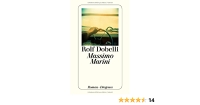
Composer, producer, sound engineer, sound designer with over 25 years of experience in the audio industry and in teaching. He has worked on numerous productions in every branch of audio; from discography, to post-production, from music consulting to 5.1 mixing for cinema. He had also developed an deep interest in teaching that led him to give lectures and take on coordination duties in schools of the highest level, both in the field of music and audio engineering.
Shrek The Musical
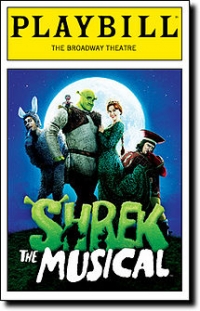
Shrek the Musical is a musical with music by Jeanine Tesori and book and lyrics by David Lindsay-Abaire. It is based on the 1990 book Shrek! by William Steig as well as the 2001 DreamWorks film of the same name. After a tryout in Seattle, the original Broadway production opened in December 2008 and, after a run of over 12 months, closed in January 2010. The first US Tour began in July 2010, with a West End production due to open in June 2011.
Francis Poulenc
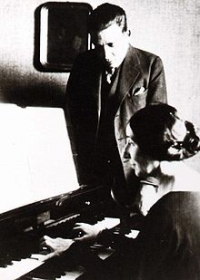
Francis Jean Marcel Poulenc (French pronunciation: (7 January 1899 - 30 January 1963) was a French composer and a member of the French group Les Six. He composed music in genres including art song, solo piano music, chamber music, oratorio, opera, ballet music, and orchestral music. Critic Claude Rostand, in a July 1950 Paris-Presse article, described Poulenc as "half monk, half delinquent" ("le moine et le voyou"), a tag that was to be attached to his name for the rest of his career.
Regina Spektor

Regina Spektor (born February 18, 1980) is a Soviet-born Jewish-American singer-songwriter and pianist. Her music is associated with the anti-folk scene centered on New York City's East Village.
Spektor has said that she has created 700 songs, but that she rarely writes any of them down. She has also stated that she never aspired to write songs herself, but songs seem to just flow to her. Spektor possesses a broad vocal range and uses the full extent of it. She also explores a variety of different and somewhat unorthodox vocal techniques, such as verses composed entirely of buzzing noises made with the lips and beatbox-style flourishes in the middle of ballads, and also makes use of such unusual musical techniques as using a drum stick to tap rhythms on the body of the piano or chair.
Her lyrics are equally eclectic, often taking the form of abstract narratives or first-person character studies, similar to short stories or vignettes put to song. Spektor usually sings in English, though she sometimes includes a few words or verses of Latin, Russian, French, and other languages in her songs.
Spektor has said that she has created 700 songs, but that she rarely writes any of them down. She has also stated that she never aspired to write songs herself, but songs seem to just flow to her. Spektor possesses a broad vocal range and uses the full extent of it. She also explores a variety of different and somewhat unorthodox vocal techniques, such as verses composed entirely of buzzing noises made with the lips and beatbox-style flourishes in the middle of ballads, and also makes use of such unusual musical techniques as using a drum stick to tap rhythms on the body of the piano or chair.
Her lyrics are equally eclectic, often taking the form of abstract narratives or first-person character studies, similar to short stories or vignettes put to song. Spektor usually sings in English, though she sometimes includes a few words or verses of Latin, Russian, French, and other languages in her songs.
Janice Vidal

Janice M. Vidal is a Hong Kong Cantopop singer of mixed Filipino and Korean descent. Vidal was first discovered by music producer Mark Lui and initially began her career as a back-up singer for Leon Lai.
Feel

Feel is a Polish band which was formed in Katowice in 2005. Originally called 'Q2', the band later adopted 'Kupicha Band' as its name and then finally 'Feel'. The group released its debut album 'Feel' on November 26, 2007.
Venus
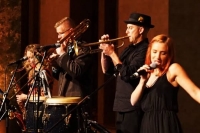
Venus was a band created in 1997 by five artists hailing from Brussels and Belgium. The original goal of the band was to create an original sound that expressed different emotions through several instruments including guitar, violin, double bass, organ, percussion, synth, and a host of others.
Mika

Mica Penniman (born 18 August 1983), known as Mika, is a Lebanese-born, London-based, Grammy-nominated and BRIT Award-winning singer-songwriter, who has a recording contract with Casablanca Records and Universal Music. He rose to fame around the end of 2006 and the start of 2007. His birth name is Michael Holbrook Penniman.
Travis Cottrell

Travis Cottrell is an American contemporary Christian music (CCM) artist, songwriter, author, and worship leader.
Cottrell was raised in Boone, North Carolina. In 1990, he moved to Nashville, Tennessee to study at Belmont University. After graduating in 1992 with a degree in music, Cottrell dedicated time to songwriting. That same year, he wrote Larnelle Harris' song "It's Only Thunder". He then worked with Kathie Hill on a musical titled Waiters: A Youth Musical About Waiting on the Lord. Cottrell then continued writing and working as an editor at a music publishing company.
Cottrell was raised in Boone, North Carolina. In 1990, he moved to Nashville, Tennessee to study at Belmont University. After graduating in 1992 with a degree in music, Cottrell dedicated time to songwriting. That same year, he wrote Larnelle Harris' song "It's Only Thunder". He then worked with Kathie Hill on a musical titled Waiters: A Youth Musical About Waiting on the Lord. Cottrell then continued writing and working as an editor at a music publishing company.
Joe Garland
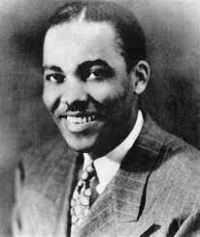
Joseph Copeland Garland was an American jazz saxophonist, composer, and arranger, best known for writing "In the Mood". Garland studied music at Shaw University and the Aeolian Conservatory.
Joseph Oliver
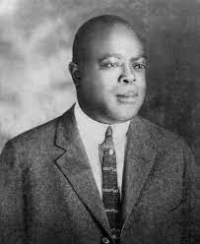
Joseph Nathan "King" Oliver was an American jazz cornet player and bandleader. He was particularly recognized for his playing style and his pioneering use of mutes in jazz.
Beatriz de Dia

The Comtessa de Dia, possibly named Beatritz or Isoarda, was a trobairitz. She is only known as the comtessa de Dia in contemporary documents, but was most likely the daughter of Count Isoard II of Diá.
Billy Joel

William Martin Joel (born May 9, 1949) is an American pianist and singer-songwriter. He released his first hit song, "Piano Man", in 1973. According to the RIAA, he is the sixth best-selling recording artist in the United States.
Joel had Top 10 hits in the '70s, '80s, and '90s; is a six-time Grammy Award winner, and has sold in excess of 150 million albums worldwide. He was inducted into the Songwriter's Hall of Fame (Class of 1992), the Rock and Roll Hall of Fame (Class of 1999), and the Long Island Music Hall of Fame (Class of 2006). Joel "retired" from recording pop music in 1993 but continued to tour (sometimes with Elton John). In 2001 he subsequently released Fantasies & Delusions, a CD of classical compositions for piano. In 2007 he returned to recording with a single entitled "All My Life," followed by an extensive "World Tour" from 2006-2008, covering many of the major world cities.
Joel had Top 10 hits in the '70s, '80s, and '90s; is a six-time Grammy Award winner, and has sold in excess of 150 million albums worldwide. He was inducted into the Songwriter's Hall of Fame (Class of 1992), the Rock and Roll Hall of Fame (Class of 1999), and the Long Island Music Hall of Fame (Class of 2006). Joel "retired" from recording pop music in 1993 but continued to tour (sometimes with Elton John). In 2001 he subsequently released Fantasies & Delusions, a CD of classical compositions for piano. In 2007 he returned to recording with a single entitled "All My Life," followed by an extensive "World Tour" from 2006-2008, covering many of the major world cities.
Anouk

Anouk Stotijn-Teeuwe (born April 8, 1975) is a Dutch singer. Since 1997 she has released seven pop-rock albums.
Anouk's interest in music began because her mother was a blues singer. Anouk initially sang at weddings and parties with the band Shotgun Wedding, prior to meeting Barry Hay from the Golden Earring, a friend of her ex-husband Edwin Jansen. Hay believed Anouk to have talent, and offered to write some songs for her, one of which was Mood Indigo; written in collaboration with George Kooymans (also from the Golden Earring).
Anouk's interest in music began because her mother was a blues singer. Anouk initially sang at weddings and parties with the band Shotgun Wedding, prior to meeting Barry Hay from the Golden Earring, a friend of her ex-husband Edwin Jansen. Hay believed Anouk to have talent, and offered to write some songs for her, one of which was Mood Indigo; written in collaboration with George Kooymans (also from the Golden Earring).
T-Max
T-Max (Korean: 티 맥스; RR: Ti Maegseu), stylized T-MAX or T.max, was a South Korean pop music group formed in 2007 under the label 2Step Entertainment (later Planet 905). The group began as a trio, where the "T" in its name was derived from the words "triple" and "trinity". T-Max released an album, an EP, five singles, some of which have songs different from its title, and several soundtrack singles for television shows such as Boys Over Flowers, Detectives in Trouble, and Master of Study. Its members have pursued individual acting gigs in dramas, sitcoms, and musicals.
Riz Ortolani
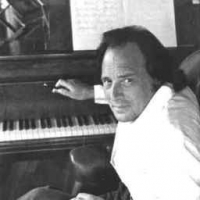
Riziero "Riz" Ortolani was an Italian film composer. Ortolani scored over 200 films, working mostly within the Italian genres of Mondo, Giallo, and the Spaghetti Western. Ortolani also scored many Hollywood films and has had some of his compositions reused in films like Drive and Django Unchained.
Ingrid Michaelson

Ingrid Michaelson (born 1979) is a New York-based indie-pop singer-songwriter, probably best known for her single The Way I Am. Her music has been featured in episodes of several popular television shows, including Grey's Anatomy and One Tree Hill, as well as in Old Navy's Fall 2007 Fair Isle advertising campaign.
She is a graduate of Staten Island Technical High School and Binghamton University, where she received a degree in theater. Her time at Binghamton is both mentioned and the backdrop for the song, "The Hat." She grew up doing a musical theater group called "Kids On Stage". Later in life she became director until she decided to pursue her career in music. On September 10, 2008, she opened for Dave Matthews Band's Stand Up for a Cure charity show at Madison Square Garden. Her set included Die Alone, Breakable, Overboard, Be OK, The Way I Am, Locked Up and some playful covers of Ice Ice Baby and The Fresh Prince of Bel-Air Theme song. She closed her set with a solo acoustic performance of Over the Rainbow in tribute to the late DMB saxophonist LeRoi Moore.
She is a graduate of Staten Island Technical High School and Binghamton University, where she received a degree in theater. Her time at Binghamton is both mentioned and the backdrop for the song, "The Hat." She grew up doing a musical theater group called "Kids On Stage". Later in life she became director until she decided to pursue her career in music. On September 10, 2008, she opened for Dave Matthews Band's Stand Up for a Cure charity show at Madison Square Garden. Her set included Die Alone, Breakable, Overboard, Be OK, The Way I Am, Locked Up and some playful covers of Ice Ice Baby and The Fresh Prince of Bel-Air Theme song. She closed her set with a solo acoustic performance of Over the Rainbow in tribute to the late DMB saxophonist LeRoi Moore.
Maroon 5
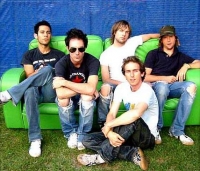
Maroon 5 is a Grammy Award-winning American pop rock band. Formed with only two members at the French Woods Festival of the Performing Arts and expanded in Los Angeles, the group comprises five members: Adam Levine (lead vocals, rhythm guitar), James Valentine (lead guitar, backing vocals), Jesse Carmichael (keyboards, rhythm guitar, backing vocals), Mickey Madden (bass guitar), and Matt Flynn (drums, percussion).
Jason Mraz
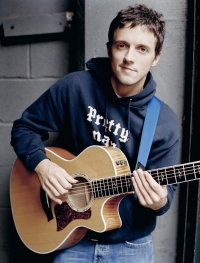
Jason Thomas Mraz (born June 23, 1977) is a singer-songwriter, born and raised in Mechanicsville, Hanover County, Virginia, a suburb of Richmond.
Mraz is an eclectic artist with multiple and varied stylistic influences, including pop, rock, folk, jazz, and hip hop. He has played with various artists, including The Rolling Stones, Bob Dylan, Dave Matthews Band, James Blunt, Gavin DeGraw, Paula Cole, John Popper, Alanis Morissette, The Ohio Players, Rachael Yamagata, James Morrison, Jewel and Colbie Caillat.
Mraz is an eclectic artist with multiple and varied stylistic influences, including pop, rock, folk, jazz, and hip hop. He has played with various artists, including The Rolling Stones, Bob Dylan, Dave Matthews Band, James Blunt, Gavin DeGraw, Paula Cole, John Popper, Alanis Morissette, The Ohio Players, Rachael Yamagata, James Morrison, Jewel and Colbie Caillat.
Richard Strauss
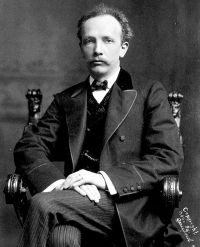
Richard Georg Strauss (German pronunciation: ; 11 June 1864 – 8 September 1949) was a German composer, conductor, pianist, and violinist. Considered a leading composer of the late Romantic and early modern eras, he has been described as a successor of Richard Wagner and Franz Liszt. Along with Gustav Mahler, he represents the late flowering of German Romanticism after Wagner, in which pioneering subtleties of orchestration are combined with an advanced harmonic style.
Van Morrison
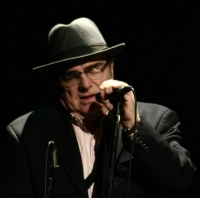
George Ivan Morrison OBE (generally known as Van Morrison) (born 31 August 1945) is a Grammy Award-winning Northern Irish singer, songwriter, author, poet and multi-instrumentalist, who has been a professional musician since the late 1950s. He plays a variety of instruments, including the guitar, harmonica, keyboards, drums, and saxophone. Featuring his characteristic growl—a unique mix of folk, blues, soul, jazz, gospel, and Ulster Scots Celtic influences—Morrison is widely considered one of the most unusual and influential vocalists in the history of rock and roll. Critic Greil Marcus has gone so far as to say that "no white man sings like Van Morrison."
Known as "Van the Man" by his fans, Morrison first rose to prominence as the lead singer of the Northern Irish band Them, writing their 1964 garage rock classic hit, "Gloria". A few years later, Morrison left the band and embarked on a successful solo career.
Morrison has pursued an idiosyncratic musical path. Much of his music is tightly structured around the conventions of American soul and R&B, such as the popular singles, "Brown Eyed Girl", "Moondance", "Domino" and "Wild Night". An equal part of his catalogue consists of lengthy, loosely connected, spiritually inspired musical journeys that show the influence of Celtic tradition, jazz, and stream-of-consciousness narrative, such as his classic album Astral Weeks and lesser known works such as Veedon Fleece and Common One. The two strains together are sometimes referred to as "Celtic Soul".
Morrison's career, spanning some five decades, has influenced many popular musical artists. He was inducted into the Rock and Roll Hall of Fame in 1993 and the Songwriters Hall of Fame in 2003. In 2000, Morrison ranked number twenty-fifth on American cable music channel VH1's list of its "100 Greatest Artists of Rock and Roll", and in 2004, Rolling Stone magazine ranked Van Morrison forty-second on their list of "Greatest Artists of All Time". Paste ranked him twentieth in their list of "100 Greatest Living Songwriters" in 2006 and Q ranked him twenty-second on their list of "100 Greatest Singers" in April 2007.
Known as "Van the Man" by his fans, Morrison first rose to prominence as the lead singer of the Northern Irish band Them, writing their 1964 garage rock classic hit, "Gloria". A few years later, Morrison left the band and embarked on a successful solo career.
Morrison has pursued an idiosyncratic musical path. Much of his music is tightly structured around the conventions of American soul and R&B, such as the popular singles, "Brown Eyed Girl", "Moondance", "Domino" and "Wild Night". An equal part of his catalogue consists of lengthy, loosely connected, spiritually inspired musical journeys that show the influence of Celtic tradition, jazz, and stream-of-consciousness narrative, such as his classic album Astral Weeks and lesser known works such as Veedon Fleece and Common One. The two strains together are sometimes referred to as "Celtic Soul".
Morrison's career, spanning some five decades, has influenced many popular musical artists. He was inducted into the Rock and Roll Hall of Fame in 1993 and the Songwriters Hall of Fame in 2003. In 2000, Morrison ranked number twenty-fifth on American cable music channel VH1's list of its "100 Greatest Artists of Rock and Roll", and in 2004, Rolling Stone magazine ranked Van Morrison forty-second on their list of "Greatest Artists of All Time". Paste ranked him twentieth in their list of "100 Greatest Living Songwriters" in 2006 and Q ranked him twenty-second on their list of "100 Greatest Singers" in April 2007.
Super Junior

Super Junior (Korean: 슈퍼주니어; Syupeo Junieo), also known as SJ or SuJu, is a South Korean boy band debuted on November 6, 2005, by producer Lee Soo-man of SM Entertainment. They are also dubbed by the media and Korean Music Awards as the "King of Hallyu Wave" due to their prominent contributions in Korean Wave. The group comprised a total of thirteen members at its peak. Super Junior originally debuted with twelve members, consisting of leader Leeteuk, Heechul, Han Geng, Yesung, Kangin, Shindong, Sungmin, Eunhyuk, Donghae, Siwon, Ryeowook, and Kibum. Kyuhyun joined the group later in 2006.
Diane Warren
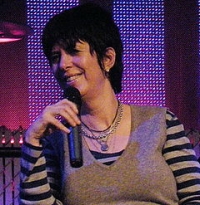
Diane Eve Warren (born September 7, 1956, Van Nuys, California) is a prolific American songwriter. Her songs have received six Academy Award nominations, four Golden Globe nominations, and seven Grammy Award nominations, including one win. She was inducted into the Songwriters Hall of Fame in 2001. Her success in the US has been paralleled in the UK, where she has been rated the third most successful female artist.
She was the first songwriter in the history of Billboard to have seven hits, all by different artists, on the singles chart at the same time. Warren owns her own publishing company, Realsongs, which gives her control over her compositions. Meanwhile, her songs have been featured in more than 70 films or television shows listed on the Internet Movie Database.
She was the first songwriter in the history of Billboard to have seven hits, all by different artists, on the singles chart at the same time. Warren owns her own publishing company, Realsongs, which gives her control over her compositions. Meanwhile, her songs have been featured in more than 70 films or television shows listed on the Internet Movie Database.
Music theory

Music theory is the study of the practices and possibilities of music. The Oxford Companion to Music describes three interrelated uses of the term "music theory"
Sonny Rollins
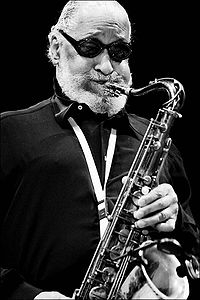
Theodore Walter Sonny" Rollins, American jazz tenor saxophonist. It is considered one of the living jazz legends. Many of his compositions, "St. Thomas", "Oleo", "Doxy", and "Airegin", are among the jazz standards.
The Sound of Music
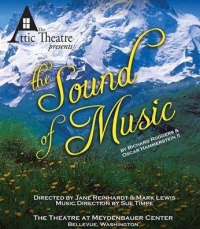
The Sound of Music is a musical with music by Richard Rodgers, lyrics by Oscar Hammerstein II, and a book by Howard Lindsay and Russel Crouse. It is based on the memoir of Maria von Trapp, The Story of the Trapp Family Singers. Songs from the musical that have become standards include "The Sound of Music", "Edelweiss", "My Favorite Things", "Climb Ev'ry Mountain", and "Do-Re-Mi".
The original Broadway production opened in November 1959, and the show has enjoyed numerous productions and revivals since then. It has also been made into an Academy Award-winning 1965 movie musical. The Sound of Music was the final musical written by Rodgers and Hammerstein; Hammerstein died of cancer nine months after the Broadway premiere.
The original Broadway production opened in November 1959, and the show has enjoyed numerous productions and revivals since then. It has also been made into an Academy Award-winning 1965 movie musical. The Sound of Music was the final musical written by Rodgers and Hammerstein; Hammerstein died of cancer nine months after the Broadway premiere.
Kanye West

Kanye Omari West (born June 8, 1977) is a 9 time Grammy Award-winning American rapper and record producer. He released his debut album The College Dropout in 2004, his second album Late Registration in 2005, and his third album Graduation in 2007. His first three albums have received numerous awards, critical acclaim, and commercial success. West also runs his own record label GOOD Music. West's mascot and trademark is "Dropout Bear," a teddy bear which has appeared on the covers of his three albums as well as the singles "Stronger" and "Homecoming."
West's parents divorced when he was three years old, and he and his mother moved to Chicago, Illinois. He enrolled at Chicago State University but later dropped out to continue pursuing his music career. He later gained fame by producing hit singles for musical artists including Jay-Z, Alicia Keys, and Janet Jackson. West's style of production often utilizes pitched-up vocal samples, usually from soul songs, with his own drums and instruments. Some controversy has also surrounded West, such as an incident during a live telecast of a benefit concert for Hurricane Katrina relief, when he deviated from the script and told the audience, "George Bush doesn't care about black people."
On May 16, 2008, Kanye West was crowned by MTV as the year's #1 "Hottest MC In The Game."
West's parents divorced when he was three years old, and he and his mother moved to Chicago, Illinois. He enrolled at Chicago State University but later dropped out to continue pursuing his music career. He later gained fame by producing hit singles for musical artists including Jay-Z, Alicia Keys, and Janet Jackson. West's style of production often utilizes pitched-up vocal samples, usually from soul songs, with his own drums and instruments. Some controversy has also surrounded West, such as an incident during a live telecast of a benefit concert for Hurricane Katrina relief, when he deviated from the script and told the audience, "George Bush doesn't care about black people."
On May 16, 2008, Kanye West was crowned by MTV as the year's #1 "Hottest MC In The Game."
Cat Stevens
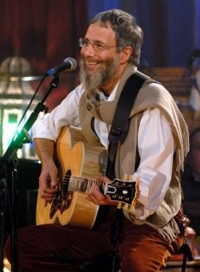
Yusuf Islam, (born Steven Demetre Georgiou on 21 July 1948), best known by his former stage name Cat Stevens, is a British musician of Greek Cypriot and Swedish ancestry. He is a singer-songwriter, multi-instrumentalist, educator, philanthropist and prominent convert to Islam.
As Cat Stevens, he sold over 60 million albums around the world since the late 1960s. His albums Tea for the Tillerman and Teaser and the Firecat were both certified as Triple Platinum by the RIAA in the United States (three million sales each); his album Catch Bull at Four sold half a million copies in the first two weeks of release alone, and was Billboard's number-one LP for three consecutive weeks. His songwriting has also earned him two ASCAP songwriting awards for "The First Cut Is the Deepest," which has been a hit single for five different artists, and has been instrumental for others in establishing their musical careers.
Stevens converted to Islam at the height of his fame in 1977. The following year, he adopted his Muslim name Yusuf Islam, sold all his instruments and awards for charity, and left his music career to devote himself to educational and philanthropic causes in the Muslim community. He turned to his mother to help him decide the best candidate to wed, and thus, in an arranged marriage, took his vows with Fauzia Mubarak Ali, eventually producing five living children from the union.
He has been given several awards for his work in promoting peace in the world, including 2003's World Award, the 2004 Man for Peace award, and the 2007 Mediterranean Prize for Peace. In 2006, he returned to pop music, with his first album of new pop songs in 28 years, entitled An Other Cup.
He lives with his wife, children and grand-child in London. Yusuf Islam spends part of each year in Dubai.
As Cat Stevens, he sold over 60 million albums around the world since the late 1960s. His albums Tea for the Tillerman and Teaser and the Firecat were both certified as Triple Platinum by the RIAA in the United States (three million sales each); his album Catch Bull at Four sold half a million copies in the first two weeks of release alone, and was Billboard's number-one LP for three consecutive weeks. His songwriting has also earned him two ASCAP songwriting awards for "The First Cut Is the Deepest," which has been a hit single for five different artists, and has been instrumental for others in establishing their musical careers.
Stevens converted to Islam at the height of his fame in 1977. The following year, he adopted his Muslim name Yusuf Islam, sold all his instruments and awards for charity, and left his music career to devote himself to educational and philanthropic causes in the Muslim community. He turned to his mother to help him decide the best candidate to wed, and thus, in an arranged marriage, took his vows with Fauzia Mubarak Ali, eventually producing five living children from the union.
He has been given several awards for his work in promoting peace in the world, including 2003's World Award, the 2004 Man for Peace award, and the 2007 Mediterranean Prize for Peace. In 2006, he returned to pop music, with his first album of new pop songs in 28 years, entitled An Other Cup.
He lives with his wife, children and grand-child in London. Yusuf Islam spends part of each year in Dubai.
Hillsong United

The Hillsong United band is an Australian rock and worship band, a part of Hillsong Church's youth ministry Hillsong United. Their music is a contemporary style of praise and worship tempered with mainstream rock.
Current members of the Hillsong United band include Jonathon Douglass (J.D.), Jadwin "Jad" Gillies, Holly Watson, Annie Garratt, Bec Gillies, and Michelle Fragar, daughter of Russell Fragar. Michael Guy Chislett plays guitar and Matthew Tennikoff plays bass guitar. Former original drummer Luke Munns made a transition from the drums to front the rock/indie band LUKAS. Popular New Zealand artist Brooke Fraser recently joined the band when she joined the church, first appearing on United We Stand.
The annual Hillsong United CD/DVD was recorded over many years during their October youth conference Encounterfest, with the album released in the first quarter of the following year. The 2007 album All of the Above was the first album to be fully studio recorded, containing videos of songs on the DVD. The band has toured in a number of countries, leading worship to thousands in North and South America, Europe and Asia.
Current members of the Hillsong United band include Jonathon Douglass (J.D.), Jadwin "Jad" Gillies, Holly Watson, Annie Garratt, Bec Gillies, and Michelle Fragar, daughter of Russell Fragar. Michael Guy Chislett plays guitar and Matthew Tennikoff plays bass guitar. Former original drummer Luke Munns made a transition from the drums to front the rock/indie band LUKAS. Popular New Zealand artist Brooke Fraser recently joined the band when she joined the church, first appearing on United We Stand.
The annual Hillsong United CD/DVD was recorded over many years during their October youth conference Encounterfest, with the album released in the first quarter of the following year. The 2007 album All of the Above was the first album to be fully studio recorded, containing videos of songs on the DVD. The band has toured in a number of countries, leading worship to thousands in North and South America, Europe and Asia.
Lowell Mason
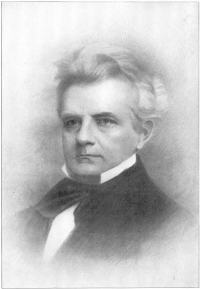
Lowell Mason (January 8, 1792 – August 11, 1872) was a leading figure in American church music, the composer of over 1600 hymn tunes, many of which are often sung today. His best-known work includes an arrangement of Joy to the World and the tune Bethany, which sets the hymn text Nearer, My God, to Thee. Mason also set music to Mary Had A Little Lamb. He is largely credited with introducing music into American public schools, and is considered the first important U.S. music educator. He has also been criticized for helping to largely eliminate the robust tradition of participatory sacred music that flourished in America before his time.
José Maurício Nunes Garcia
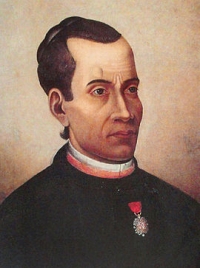
José Maurício Nunes Garcia (September 22, 1767 – April 18, 1830) was a Brazilian classical composer, one of the greatest exponents of Classicism in the Americas.Born in Rio de Janeiro, son of mulattos, Nunes Garcia lost his father at an early age. His mother perceived that her son had an inclination for becoming a musician and, for this reason, improved her work to allow him to continue his musical studies.Nunes Garcia became a priest and, when prince John VI of Portugal came to Rio de Janeiro with his 15,000 people, Nunes Garcia was appointed Master of the Royal Chapel. He sang and played the harpsichord, performing his compositions as well as those of other composers such as Domenico Cimarosa and Wolfgang Amadeus Mozart. He was a very prestigious musician in the royal court of John VI.
Richard Clayderman
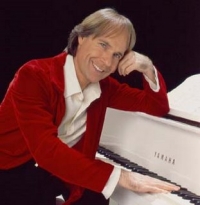
Richard Clayderman (born Philippe Pagès on December 28, 1953, Paris) is a French pianist who has released numerous albums including the original compositions by Paul de Senneville and Olivier Toussaint, and instrumental renditions of popular music, rearrangements of movie sound tracks, ethnic music, and easy-listening arrangements of most popular works of classical music.
In 1976 he was invited from Olivier Toussaint a French record producer and his partner Paul de Senneville to record a gentle piano ballad. Paul de Senneville had composed this ballad as a tribute to his new born daughter “Adeline”. The 23 year old Philippe Pagès was auditioned along with 20 other pianists. They liked his special and soft touch on the keyboards combined with his good looks and fine personality, and finally he got the job.
Philippe Pagès' name was changed to Richard Clayderman (he adopted his great-grandmother's last name to avoid mispronunciation of his real name outside France), and the single took off, selling an astonishing 22 million copies in 38 countries. It was called Ballade pour Adeline.
In 1976 he was invited from Olivier Toussaint a French record producer and his partner Paul de Senneville to record a gentle piano ballad. Paul de Senneville had composed this ballad as a tribute to his new born daughter “Adeline”. The 23 year old Philippe Pagès was auditioned along with 20 other pianists. They liked his special and soft touch on the keyboards combined with his good looks and fine personality, and finally he got the job.
Philippe Pagès' name was changed to Richard Clayderman (he adopted his great-grandmother's last name to avoid mispronunciation of his real name outside France), and the single took off, selling an astonishing 22 million copies in 38 countries. It was called Ballade pour Adeline.
Offenbach

Jacques Offenbach (20 June 1819 – 5 October 1880) was a Prussian-born French composer, cellist and impresario. He is remembered for his nearly 100 operettas of the 1850s–1870s and his uncompleted opera The Tales of Hoffmann. He was a powerful influence on later composers of the operetta genre, particularly Johann Strauss, Jr. and Arthur Sullivan. His best-known works were continually revived during the 20th century, and many of his operettas continue to be staged in the 21st. The Tales of Hoffman remains part of the standard opera repertory.
Celine Dion

Céline Marie Claudette Dion (born March 30, 1968 in Charlemagne, Quebec) is a Canadian singer, and occasional songwriter and actress.
Dion had first gained international recognition in the 1980s by winning both the 1982 Yamaha World Popular Song Festival and the 1988 Eurovision Song Contest.
Dion's music has been influenced by genres ranging from rock and R&B to gospel and classical, and while her releases have often received mixed critical reception, she is renowned for her technically skilled and powerful vocals.
Dion had first gained international recognition in the 1980s by winning both the 1982 Yamaha World Popular Song Festival and the 1988 Eurovision Song Contest.
Dion's music has been influenced by genres ranging from rock and R&B to gospel and classical, and while her releases have often received mixed critical reception, she is renowned for her technically skilled and powerful vocals.
Mussorgsky
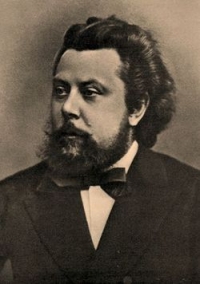
Modest Petrovich Mussorgsky (March 21, 1839 – March 28, 1881), one of the Russian composers known as the Five, was an innovator of Russian music. He strove to achieve a uniquely Russian musical identity, often in deliberate defiance of the established conventions of Western music.
Like his literary contemporary Fyodor Dostoyevsky, Mussorgsky depicts in his music "the insulted and the injured" with all their passion and pain. He raises these characters to tragic heights until the grotesque and majestic coexist. Mussorgsky could accomplish this not simply out of compassion or guilt towards them, but because in his works he almost becomes them. Mussorgsky's music is vivid, confused, feverish and ultimately hypnotizing —again, like Dostoyevsky at his best.
Many of his major works were inspired by Russian history, Russian folklore, and other nationalist themes, including the opera Boris Godunov, the orchestral tone poem Night on Bald Mountain, and the piano suite Pictures at an Exhibition. However, while Mussorgsky's music can be vivid and nationalistic, it does not glorify the powerful and is at times (such as in The Field-Marshal) antimilitaristic. For this reason, it was perceived as being directed against the state and its composer "under suspicion." He, like the others in The Russian Five, were considered dangerous extremists by the emperor and his court. This may have been the reason Tsar Alexander III personally crossed off Boris Godounov from the list of proposed pieces for the imperial opera in 1888.
For many years Mussorgsky's works were mainly known in versions revised or completed by other composers. Many of his most important compositions have recently come into their own in their original forms, and some of the original scores are now also available.
Like his literary contemporary Fyodor Dostoyevsky, Mussorgsky depicts in his music "the insulted and the injured" with all their passion and pain. He raises these characters to tragic heights until the grotesque and majestic coexist. Mussorgsky could accomplish this not simply out of compassion or guilt towards them, but because in his works he almost becomes them. Mussorgsky's music is vivid, confused, feverish and ultimately hypnotizing —again, like Dostoyevsky at his best.
Many of his major works were inspired by Russian history, Russian folklore, and other nationalist themes, including the opera Boris Godunov, the orchestral tone poem Night on Bald Mountain, and the piano suite Pictures at an Exhibition. However, while Mussorgsky's music can be vivid and nationalistic, it does not glorify the powerful and is at times (such as in The Field-Marshal) antimilitaristic. For this reason, it was perceived as being directed against the state and its composer "under suspicion." He, like the others in The Russian Five, were considered dangerous extremists by the emperor and his court. This may have been the reason Tsar Alexander III personally crossed off Boris Godounov from the list of proposed pieces for the imperial opera in 1888.
For many years Mussorgsky's works were mainly known in versions revised or completed by other composers. Many of his most important compositions have recently come into their own in their original forms, and some of the original scores are now also available.
Mobile Suit Gundam Seed

Mobile Suit Gundam SEED (Japanese: 機動戦士ガンダムSEED (シード) Kidō Senshi Gandamu Shīdo) is a 2002 anime series produced by Sunrise. The series is the ninth installment of the Gundam series and takes place in the Cosmic Age in the future calendar period. The story revolves around a young Coordinator Kira Yamato, who joins the war between the two races after a third neutral group's space colony is invaded by the Coordinators.
Javier Busto
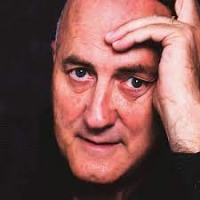
Javier Busto Spanish musical composerJavier Busto Sagrado is a Spanish choral music composer and conductor. Wikipedia
Born: November 13, 1949 (age 71 years), Hondarribia, Spain Albums: Memphis Design
Born: November 13, 1949 (age 71 years), Hondarribia, Spain Albums: Memphis Design
Alexander Koshyts
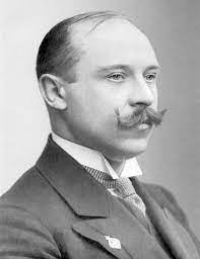
Alexander Koshetz (12 September 1875 – 21 September 1944) was a Ukrainian choral conductor, arranger, composer, ethnographer, writer, musicologist, and lecturer. He helped popularize Ukrainian music around the world. His name is sometimes transliterated as Oleksandr Koshyts (Ukrainian: Олександр Кошиць).At one time, a performance of Koshetz's Ukrainian National Chorus held the world record for audience attendance, excluding sporting events. His performance also popularized Mykola Leontovych's "Shchedryk" in his concert, which Peter Wilhousky later translated into the popular "Carol of the Bells".
Jimmo
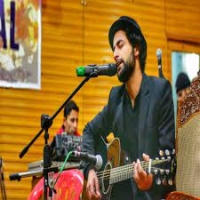
Jimmo Musical artist Songs Manies Bertiga Tanah Sang Pemberani.
Charley Straight
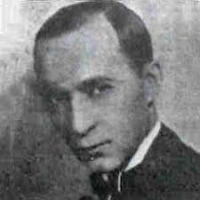
Straight started his career in 1909 accompanying singer Gene Greene in Vaudeville. In 1916, he began working at the Imperial Piano Roll Company in Chicago, where he recorded dozens of piano rolls. He became a popular bandleader in Chicago during the 1920s. His band, the Charley Straight Orchestra, had a long term engagement at the Rendezvous Café from 1922 to 1925 and recorded for Paramount Records and Brunswick Records in the 1920s.
Chabrier
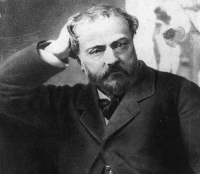
Alexis Emmanuel Chabrier (pronounced: ; January 18, 1841 – September 13, 1894) was a French Romantic composer and pianist. Although known primarily for two of his orchestral works, España and Joyeuse marche, he left an important corpus of operas (including the increasingly popular L'étoile), songs, and piano music as well. These works, though small in number, are of very high quality, and he was admired by composers as diverse as Debussy, Ravel, Richard Strauss, Satie, Schmitt, Stravinsky, and the group of composers known as Les six. Stravinsky alluded to España in his ballet Petrushka, Ravel wrote that the opening bars of Le roi malgré lui changed the course of harmony in France, Poulenc wrote a biography of the composer, and Richard Strauss conducted the first staged performance of Chabrier's incomplete opera Briséïs.
Chabrier was also associated with some of the leading writers and painters of his time. He was especially friendly with the painters Claude Monet and Édouard Manet, and collected Impressionist paintings before Impressionism became fashionable. A number of such paintings from his personal collection are now housed in some of the world's leading art museums.
Chabrier was also associated with some of the leading writers and painters of his time. He was especially friendly with the painters Claude Monet and Édouard Manet, and collected Impressionist paintings before Impressionism became fashionable. A number of such paintings from his personal collection are now housed in some of the world's leading art museums.
U2

U2 are a rock band from Dublin, Ireland. The band consists of Bono (vocals and guitar), The Edge (guitar, keyboards, and vocals), Adam Clayton (bass guitar) and Larry Mullen, Jr. (drums and percussion).
The band formed in 1976 when the members were teenagers with limited musical proficiency. By the mid-1980s, however, the band had become a top international act, noted for their anthemic sound, Bono's impassioned vocals, and The Edge's textural guitar playing. Their success as a live act was greater than their success at selling records until their 1987 album The Joshua Tree increased the band's stature "from heroes to superstars," according to Rolling Stone. U2 responded to the dance and alternative rock revolutions, and their own sense of musical stagnation by reinventing themselves with their 1991 album Achtung Baby and the accompanying Zoo TV Tour. Similar experimentation continued for the rest of the 1990s. Since 2000, U2 have pursued a more traditional sound that retains the influence of their previous musical explorations.
U2 have sold more than 140 million albums worldwide and have won 22 Grammy Awards, more than any other band. In 2005, the band were inducted into the Rock and Roll Hall of Fame in their first year of eligibility. Rolling Stone magazine listed U2 at #22 in its list of the 100 greatest artists of all time. Throughout their career, as a band and as individuals, they have campaigned for human rights and social justice causes, including Amnesty International, the ONE Campaign, and Bono's DATA (Debt, AIDS, Trade in Africa) campaign.
The band formed in 1976 when the members were teenagers with limited musical proficiency. By the mid-1980s, however, the band had become a top international act, noted for their anthemic sound, Bono's impassioned vocals, and The Edge's textural guitar playing. Their success as a live act was greater than their success at selling records until their 1987 album The Joshua Tree increased the band's stature "from heroes to superstars," according to Rolling Stone. U2 responded to the dance and alternative rock revolutions, and their own sense of musical stagnation by reinventing themselves with their 1991 album Achtung Baby and the accompanying Zoo TV Tour. Similar experimentation continued for the rest of the 1990s. Since 2000, U2 have pursued a more traditional sound that retains the influence of their previous musical explorations.
U2 have sold more than 140 million albums worldwide and have won 22 Grammy Awards, more than any other band. In 2005, the band were inducted into the Rock and Roll Hall of Fame in their first year of eligibility. Rolling Stone magazine listed U2 at #22 in its list of the 100 greatest artists of all time. Throughout their career, as a band and as individuals, they have campaigned for human rights and social justice causes, including Amnesty International, the ONE Campaign, and Bono's DATA (Debt, AIDS, Trade in Africa) campaign.
G. F. Handel
George Frideric Handel (German: Georg Friedrich Händel; pronounced ) (23 February 1685 – 14 April 1759) was a German-English Baroque composer who is famous for his operas, oratorios, and concerti grossi. Handel was born in Germany in the same year as JS Bach and Domenico Scarlatti. He received critical musical training in Italy before settling in London and becoming a naturalised British subject. His works include Messiah, Water Music, and Music for the Royal Fireworks. He was strongly influenced by the techniques of the great composers of the Italian Baroque and the English composer Henry Purcell. Handel's music was well-known to many composers, including Haydn, Mozart, and Beethoven.
Bette Midler

Bette Davis Midler (born December 1, 1945) is an American singer, actress and comedian, also known to her fans as The Divine Miss M. She is named after the actress Bette Davis although Davis pronounced her first name in two syllables, and Midler uses one (/bɛt/). During her career, she has won four Grammy Awards, four Golden Globes, three Emmy Awards, and a Tony Award, and has been nominated for two Academy Awards. She is currently performing a new concert show, The Showgirl Must Go On, live five nights a week as one of the current headliners at Caesars Palace in Las Vegas (together with Cher and Elton John).
Chris Rea
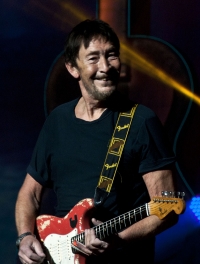
Christopher Anton Rea (/ˈriːə/ REE-ə; born 4 March 1951) is an English rock and blues singer-songwriter and guitarist. Born and raised in Middlesbrough, he is of Italian and Irish descent. He is known for his distinctive, husky singing and slide guitar playing, with the Guinness Rockopedia describing him as a "gravel-voiced guitar stalwart". After learning to play the guitar relatively late, a short burst of local band activity led to his launching a solo career in 1978.
 Sheet Music Max is a site for those who wants to access popular sheet music easily,
letting them download the sheet music for free for trial purposes.
It's completely free to download and try the listed sheet music, but you have to delete the files after 24 hours of trial.
Don't forget, if you like the piece of music you have just learned playing,
treat the artist with respect, and go buy the original sheet music.
Sheet Music Max is a site for those who wants to access popular sheet music easily,
letting them download the sheet music for free for trial purposes.
It's completely free to download and try the listed sheet music, but you have to delete the files after 24 hours of trial.
Don't forget, if you like the piece of music you have just learned playing,
treat the artist with respect, and go buy the original sheet music.